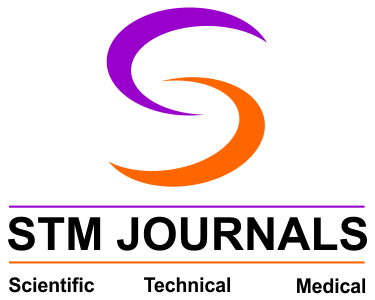FAQs
How can we help you today?
Ethical FAQs
What are the ethical considerations related to publishing in open access journals? –
Open access publishing is a growing trend in academic publishing that enables free, unrestricted access to published research. Ethical considerations related to open access publishing include ensuring that the research is of high quality and conducted ethically, protecting the rights of the authors, avoiding conflicts of interest, and ensuring that the research is accessible to all who wish to read it.
How do I ensure that my research is ethically conducted and reported in an open access journal? –
Ethical conduct of research is essential to ensure the integrity and credibility of the research. To ensure ethical conduct of research, authors should follow ethical guidelines and principles such as the Declaration of Helsinki, Belmont Report, and the Good Clinical Practice guidelines. Additionally, authors should obtain informed consent from study participants, maintain confidentiality of participant data, report the research findings accurately and honestly, and disclose any conflicts of interest.
Are there any specific ethical guidelines that I need to follow while publishing in an open access journal? –
There are no specific ethical guidelines that apply only to open access publishing. However, authors should follow the general ethical guidelines and principles of research conduct and publishing that apply to all academic journals, such as the Committee on Publication Ethics (COPE) guidelines, International Committee of Medical Journal Editors (ICMJE) guidelines, and the guidelines of their specific field of study.
What are the benefits of open access publishing from an ethical standpoint? –
Open access publishing has several ethical benefits. It promotes greater transparency, accessibility, and dissemination of research, enabling greater participation in the scientific discourse by researchers, policy-makers, and the public. Additionally, open access publishing can lead to greater collaboration and knowledge sharing among researchers, which can lead to faster scientific progress.
How can I avoid conflicts of interest while publishing in an open access journal? –
Authors should disclose all potential conflicts of interest, including financial, personal, or professional relationships that may influence their research, in their manuscript submission. Editors and reviewers should also be aware of potential conflicts of interest and should recuse themselves from the review process if they have any conflicts.
Can I publish my work in multiple open access journals? –
Publishing the same work in multiple journals, including open access journals, is generally considered unethical and can lead to duplicate publication. Authors should avoid submitting the same work to multiple journals and should ensure that their work is original and has not been previously published.
I would like to ask for permission to reuse the content in a published paper in one of the journals. –
All articles are published using a CC-BY license, which means that the author keeps their copyright. Articles can be used freely provided that they are appropriately referenced and cited.
I should be included as a co-author of this publication, please advise me how to proceed. –
- It follows guidelines on authorship. Contributors who meet fewer than all four criteria for authorship should not be listed as authors, but they should be acknowledged. You can get in touch with the team of the relevant journal should you need to make any correction to authorship. All listed authors would be required to fill in and sign an authorship change form.
- For the authorship dispute, please contact the authors or institute/university first. According to the guideline of COPE, it is not the role of the journal editors to determine who qualifies or does not qualify for authorship or to arbitrate authorship conflicts. If agreement cannot be reached about who qualifies for authorship, the institution(s) where the work was performed should be asked to investigate.
What are the consequences of publishing in predatory open access journals? –
Predatory open access journals are journals that do not follow ethical publishing practices and often engage in fraudulent activities such as charging exorbitant fees, falsifying peer-review, and publishing low-quality research. Publishing in predatory journals can damage an author’s reputation, as well as the credibility of their research. Additionally, predatory journals do not provide the same level of peer-review and quality control as reputable journals, which can lead to erroneous or fraudulent research findings.
What are the ethical considerations related to data sharing and reuse in open access publishing? –
Data sharing and reuse are important ethical considerations in open access publishing. Authors should ensure that any data used in their research is properly attributed and that any restrictions on data sharing are clearly communicated to readers. Additionally, authors should ensure that any data used in their research is obtained ethically and with informed consent from study participants.
How can I ensure that my work is properly attributed and that I receive credit for my research in open access journals? –
Authors should ensure that their work is properly attributed by including appropriate citations and references to all sources used in their research. Additionally, authors should ensure that their work is properly credited by including their name, institutional affiliation, and contact information in their manuscript submission.

